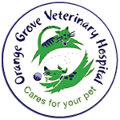World Rabies Day occurs annually on the 28th of September. The goal of the day is to raise awareness surrounding the rabies epidemic which affects the lives of both humans and animals globally. It is estimated that every day more than 5.5 billion people are at risk from rabies.
Rabies is a viral disease that is transmitted through the saliva or nervous system of an infected mammal to another mammal. Rabies is a zoonotic disease which means it can be contracted from animals to humans. As there is no effective treatment for once contracted, rabies is nearly always fatal in both humans and animals.
Rabies infections are often contracted from a bite or scratch from an infected animal. In humans, the most common transmission is from dogs (99% of cases worldwide). The disease targets the nervous system and eventually causes inflammation in the brain leading to death. Early symptoms of rabies can be as mild as a headache, general weakness, or fever. Rabies can take anywhere between 1 – 3 months to incubate but can be dormant for up to a year in some cases.
It is believed that rabies is responsible for approximately 59 000 deaths annually, with 95% of these deaths occurring in Africa and Asia. Sadly almost half of these deaths are children. These deaths are avoidable as rabies is 100% preventable through vaccinating both humans and animals. Additionally, vaccinating 70% of dogs in an at-risk population can prevent rabies from spreading to humans in that area of coverage.
What can you as an individual and a pet owner do to make a difference? The first and most important thing is to protect yourself and your family by going to get vaccinated against rabies. Secondly, ensure all your pets are vaccinated against rabies, and this does not just mean when they are puppies or kittens? In South Africa, it is mandatory by law to have your dogs and cats vaccinated and it is recommended that your pet receive a rabies booster vaccination annually. Booster vaccinations ensure your pet maintains adequate immunity against the disease throughout his or her life.
Vaccination, although highly effective, is not the only way to prevent rabies. Taking into account the fact that in South Africa, we have had a number of cases of rabies death in humans, dogs, and wild animals such as Jackals in the past few years. It is critically important that we teach our children and other members of our community how to behave around strange animals. Many people allow their children to approach an unknown dog or cat without caution, which in many instances can be a precursor for an animal to bite or scratch a child. Additionally, educate yourself and your children for the potential signs of rabies in animals such as agitation, dropped jaw, aggressiveness, hiding in dark places, foaming at the mouth, and inability to swallow, to name a few.
The Global Alliance for Rabies Control is an international non-profit organisation whose main aim is to eliminate rabies globally by the year 2030.
Save 15% when you vaccinate your dog or cat between the 26th – 30th of September 2022. For more information or to book contact us on (011) 728 – 1371 or email ogvh@iafrica.com.
Resources
www.rabiesalliance.org
www.petlifesa.com





